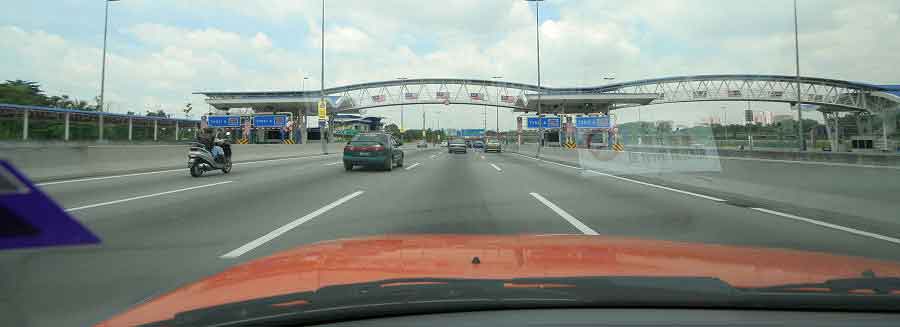
Reacting to death toll on Malaysia’s roads
January 10th, 2014
Malaysia has one of the world’s highest death rates from road accidents, according to the International Transport Forum.
The UK, however, has a much lower rate and is experiencing a downward trend.
A cross-cultural study of drivers carried out by the School of Psychology’s Driving Research Group at The University of Nottingham Malaysia Campus (UNMC) and The University of Nottingham in the UK showed that Malaysian drivers have much slower reaction times and required a higher threshold of danger before taking action. The study also found that the better we know a road, the more likely we are to identify hazards.
This could have consequences for hazard perception tests for drivers in developing countries where road safety is a primary concern.
The International Transport Forum’s Annual report for 2013 showed that in 2011 there were 1,960 fatalities on UK roads — a fall of nearly 64% since 1990. In Malaysia the figure was 6,877 — a rise of 70% since 1990.
Phui Cheng Lim, a postgraduate student who led the research, said: “The fact that Malaysian drivers were slower to respond to danger possibly reflects the more hazardous road environment they are used to.
“Although hazard perception tests are used in several developed countries as part of the driver licensing curriculum, little research has been done in developing countries where road safety is a primary concern. Our results suggest that hazard perception testing, particularly in developing countries, would benefit from a paradigm where performance cannot be confused with differing thresholds of what is regarded as a potential hazard.”
The research — “Cross-cultural effects on drivers’ hazard perception” — was carried out in Malaysia and the UK. It was instigated by Dr Elizabeth Sheppard shortly after she arrived at UNMC. Funded by an Early Career Research and Knowledge Transfer grant from The University of Nottingham, the research has been published in the academic journal Transportation Research Part F: Traffic Psychology and Behaviour.
Dr Sheppard said: “I thought getting a car would make life easier but I soon realised that driving in Malaysia was very different from back home in Britain. I had to completely rethink my driving strategy.”
Dr Sheppard now heads the Driving Research Group, which is among the first groups to do experimental research on driving in Malaysia. Until now most studies have been based on surveys or observational analysis looking at the social aspects of driving.
Volunteers from the UK and Malaysia were shown videos of driving scenarios in both countries and tested on their reactions. The difference was statistically significant, with British drivers taking an average of 1.68 seconds to register the emerging threat while Malaysian drivers took 2.25 seconds to respond.
Eye-tracking data showed the Malaysians saw the hazards at the same time as the British drivers but took longer to respond, suggesting they considered the hazards less dangerous.
Dr Sheppard said: “Although Malaysian drivers reacted more slowly, having a slightly attenuated view of what constitutes a hazard doesn’t mean you’re not noticing what’s going on around you. The kind of test we used works very well in the UK, but for countries where people seem more desensitised to hazards, it may not be as appropriate.”
Her team is investigating alternative ways to examine hazard perception.
Tags: Dr Elizabeth Sheppard, Driving Research Group, Early Career Research and Knowledge Transfer, International Transport Forum, Phui Cheng Lim, School of Psychology, The University of Nottingham Malaysia Campus, Transportation Research Part F: Traffic Psychology and Behaviour, UNMC
Leave a Reply
Other Research

Welcome to Associate Pro-Vice-Chancellor for Researcher Academy and Research Culture Development
Professor Jeanette Woolard has been appointed as Associate Pro-Vice-Chancellor for the Researcher Academy and Research Culture Development. […]

Strong research funding performance is a fantastic achievement
Professor Tom Rodden’s research update I am delighted to report that the University of Nottingham is […]

